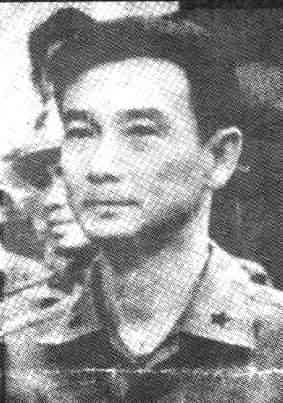

[General Hung] came from a well-to-do family with all the social status necessary for command in the South Vietnamese Army, and he disliked overbearing Americans who wanted the war fought according to American rules. This resentment colored Hung's relations with U.S. officers since the early 1960s, garnering him a reputation as "anti-American." Before being awarded command of the 5th Division in 1971 on the advice of his friend and mentor, General Minh, Hung was a province chief in the Mekong Delta. He came to III Corps as part of a clique of officers, the so-called "Delta Clan," brought from the Mekong region to surround Minh with loyal minions. Hung was fairly tall for a Vietnamese, about five-foot-six. Even during the dark days just before the siege of An Loc he remained an immaculate dresser: fatigues pressed, insignia polished and straightened. He later returned to IV Corps as the deputy corps commander, and when South Vietnam fell in the spring of 1975, Le Van Hung and his commander committed suicide rather than surrender to the communists.
As division senior adviser, Colonel William Miller got to know Hung better than any other American. But Miller himself never quite knew what to make of Hung. When he first came to the 5th ARVN Division in the summer of 1971 Miller reported to TRAC (Third Regional Assistance Command) that "Hung displays outstanding leadership, is aggressive, organized, and forceful. He appears extremely knowledgeable, has confidence in himself and is quickly gaining the confidence of his subordinates." Miller was either being less than candid with his commander or he had badly misread his counterpart. On the eve of the battle in III Corps Miller's perceptions of Hung were more sharply etched. In one way the 5th ARVN Division commander was just like other South Vietnamese officers Miller had served with during precious tours; they all regarded their counterparts as a faucet to tap the wealth of supplies and ammunition flowing through the American logistical pipeline. But Hung was more aloof than most South Vietnamese officers. Although he respected Miller, Hung rarely sought out his advice and often did not inform him of tactical decisions. Hung was no coward, but like many other high-ranking South Vietnamese officers he tried to refrain from making tough decisions. If possible he would wait and watch, hoping a bad situation would just go away.
(pp 389-390)
Dale Andrade
Trial By Fire
1995